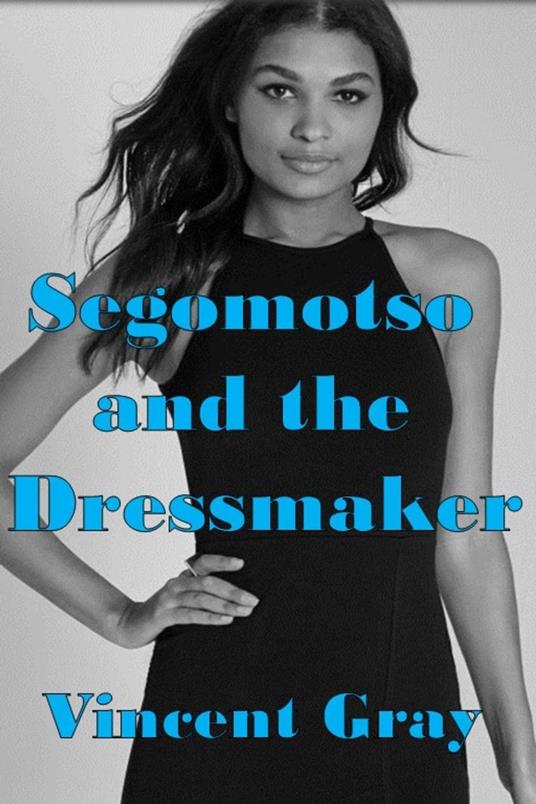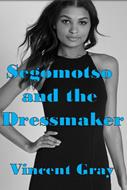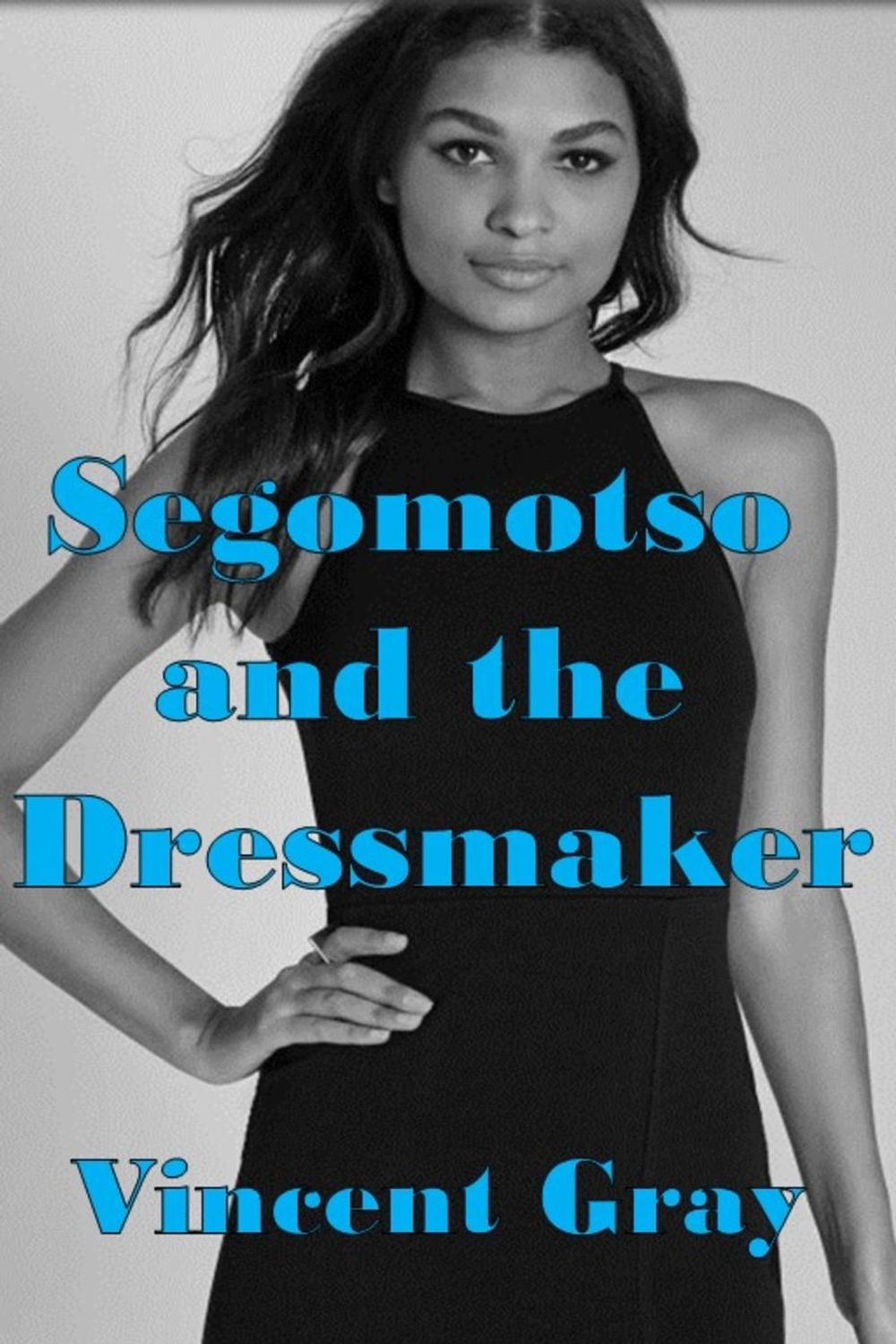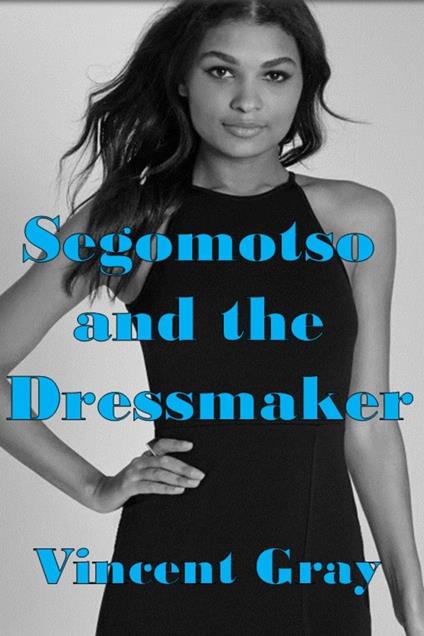Segomotso And The Dressmaker
In this South African-styled LGBTQ story, Joab Badenhorst was born and grew up within a deeply conservative Calvinistic Afrikaner community in the predominantly Afrikaan speaking town of Potchefstroom in what was once the Western Transvaal before the 1994 election which brought the ANC into power. The young boy insisted on playing with dolls and then he only wanted to wear dresses. He was incredibly stubborn about wanting to wear dresses as a young child. He had uncontrollable tantrums when she refused to let him wear a dress. Burdened with all the stresses and worries of running the garment factory, she did not have the emotional strength to fight with her indomitable son. So from the age of two, every morning she would dress him up as a little girl with lace socks, a frilly dress, and frilly panties, tying bows and ribbons to his long black hair which he refused to let her cut, and that's the way he would walk around the whole day in the factory much to the gaiety, laughter, and delight of the black women, who were always greatly entertained by this very strange little white boy who was always busy collecting fabric offcuts from the factory floor and then retiring to a corner to play a game of dressmaking with his collection of dolls. His mother began to blame herself for the way her boy was turning out. With her long hours at the factory, it was impossible for her to give him the attention she felt he deserved. The two old grandparents genuinely loved their grandson and doted over him. They indulged him and even seemed to encourage his every whim. They never discouraged his interest in make-up, dresses, and dolls, and consequently, as a small boy, they did nothing to stop him from clogging around the house in his mother's or grandmother's high heels with a bra draped like some absurd oversized grotesque necklace around his neck onto to his chest. Not a single day or night went by without Mrs Badenhorst praying on her knees, pleading with the Father Almighty, that Joab would not grow up to be a transvestite. Initially, she was too ashamed to let him go to Sunday school on Sundays and always left him in the care of the domestic servant who would have to play dressmaking with him and his dolls in the backyard. It was unimaginable that her son would grow up to be a dress-wearing transvestite and chase after men like some bitch on heat. Eventually following his post-adolescent sexual awakening, and youthful process of self-discovery, he eventually, as a young adult, self-identified fully as a transvestite, but with growing tendencies towards becoming a trans-woman. However, his journey towards becoming a trans-woman, follows a tortuous path. After finishing his schooling, like all other white South African males, he was conscripted into the army and is ineluctably sucked into the counter-insurgency bush war on the border. After completing his national military he is obliged to be a member of the citizen force, and once more he finds himself thrown once more into the theatre of war, this time in the Angolan civil war. Between the counter-insurgency bush wars and the conventional civil war in Angola, he manages to graduate with a BA degree majoring in philosophy and theology. As a postgraduate student studying philosophy, he supports himself financially as a dressmaker. It is in the context of his career as a dressmaking transvestite that he seriously contemplates becoming a trans-woman. While in the throes of these decisions he engages in theological and philosophical debates with John Calvin. In the process he finds himself debating the nature of God, sex, sin, salvation, and reality. During this phase of his journey, his life intersects with the life of a young black woman called Segotmotso, who wants to become a dressmaker. .
-
Autore:
-
Anno edizione:2022
-
Editore:
-
Formato:
-
Lingua:Inglese
Formato:
Gli eBook venduti da Feltrinelli.it sono in formato ePub e possono essere protetti da Adobe DRM. In caso di download di un file protetto da DRM si otterrà un file in formato .acs, (Adobe Content Server Message), che dovrà essere aperto tramite Adobe Digital Editions e autorizzato tramite un account Adobe, prima di poter essere letto su pc o trasferito su dispositivi compatibili.
Cloud:
Gli eBook venduti da Feltrinelli.it sono sincronizzati automaticamente su tutti i client di lettura Kobo successivamente all’acquisto. Grazie al Cloud Kobo i progressi di lettura, le note, le evidenziazioni vengono salvati e sincronizzati automaticamente su tutti i dispositivi e le APP di lettura Kobo utilizzati per la lettura.
Clicca qui per sapere come scaricare gli ebook utilizzando un pc con sistema operativo Windows



